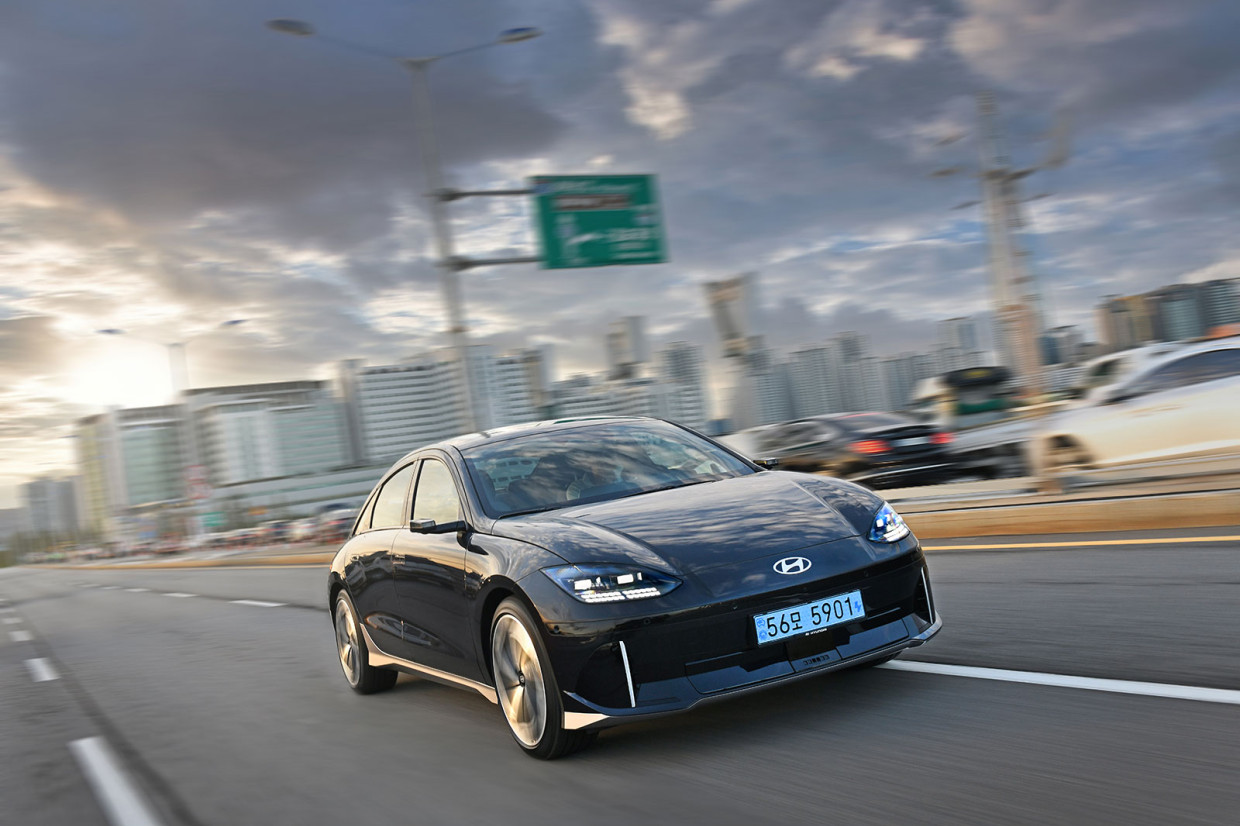
Hyundai Motor Group will massively ramp-up its use of software for its vehicles - with most features and functions offered as over-the-area upgrades.
The Korean car brand says it will turn its fleet into Software Defined Vehicles (SDVs) by 2025, giving its customers greater freedom to remotely upgrade the performance and functionality of their cars.
.jpg)
Hyundai hopes that by 2025, 20 million vehicles are expected to be registered to the Group’s Connected Car Services (CCS), while the firms Connected Car Operating System (CCOS) will offer customers personalised services.
The Group plans to invest around £11 billion in its global software strategy over the next eight years and intends to build a new Global Software Centre and research and development headquarters to spearhead the firm’s digital transformation.
Over-the-air software updates will also be available for all models by 2025, which will offer enhanced performance and functionality anytime in any location, to keep all models up to date.

HMG will also offer features on Demand (FoD) services next year, giving owners the ability to select and purchase functions that meet their needs.
Importantly, the new strategy isn’t exclusive to the Hyundai brand. Both Kia and Genesis will benefit from the firm’s future software strategy.
Hyundai Motor Group (HMG) is also planning to introduce two new EV platforms, eM and eS, by 2025, with the new electric architecture to be created under the Group’s Integrated Modular Architecture system.
The eM platform is being developed for EVs across all segments, with Hyundai promising a 50% improvement in driving range on a single charge compared to current EVs. HMG’s new platform will also be developed to support Level 3 autonomous driving technology.
Hyundai is working on two 'affordable' small electric cars

The eS platform meanwhile will be developed as an EV skateboard, designed specifically for HMG’s Purpose Built Vehicles (PBVs) with a flexible structure to meet B2B demands.
HMG recently revealed its first PBV in the form of a Kia Niro Plus, a larger version of the brand’s e-Niro which was designed for use as a taxi in Korea.
Future models will also have a greater level of autonomous driving, with the Group's CCOS operating system supporting the brand’s data-gathering. The firm will also use cameras, radars and Lidar mounted sensors on the vehicle to develop its autonomous driving systems.
READ MORE
Subscribe to the Move Electric newsletter
e-CARS
Video: Can the National Grid cope with a surge in electric vehicles?
e-BIKES
What to look for when buying an e-bike: Move Electric's top tips
The rise of Volt Bikes: 'when we launched, people thought we were mad'
e-MOTORBIKES
Maeving RM1 electric motorbike review
Q&A: Zapp founder on why electric mopeds are the future
Government plans 2035 ban on new non-zero emission motorbike sales
e-SCOOTERS
Tier to upgrade e-scooter fleet with a smart 'Parrot'
Q&A: Neuron Mobility's UK boss on e-scooters, safety and helmet selfies
e-WORLD
Polestar to supply battery tech to electric boat firm Candela
Engineering giant ABB working on electric Dover-Calais ferry
